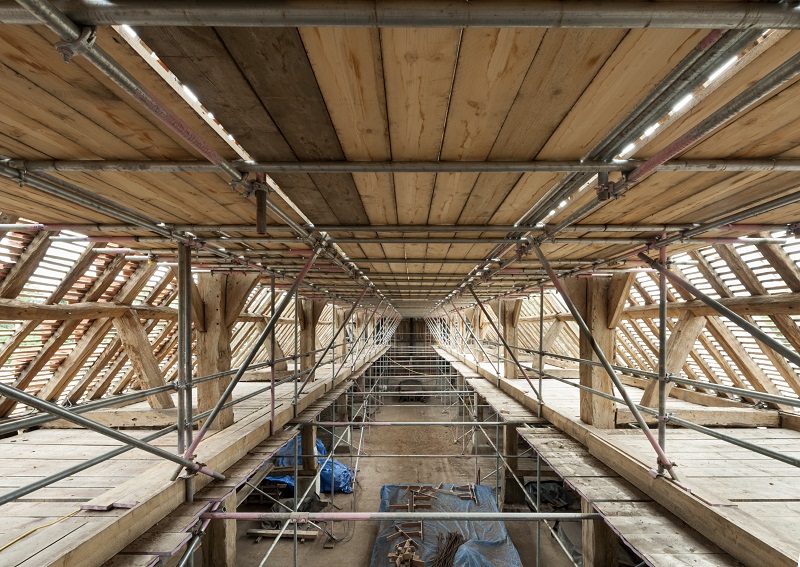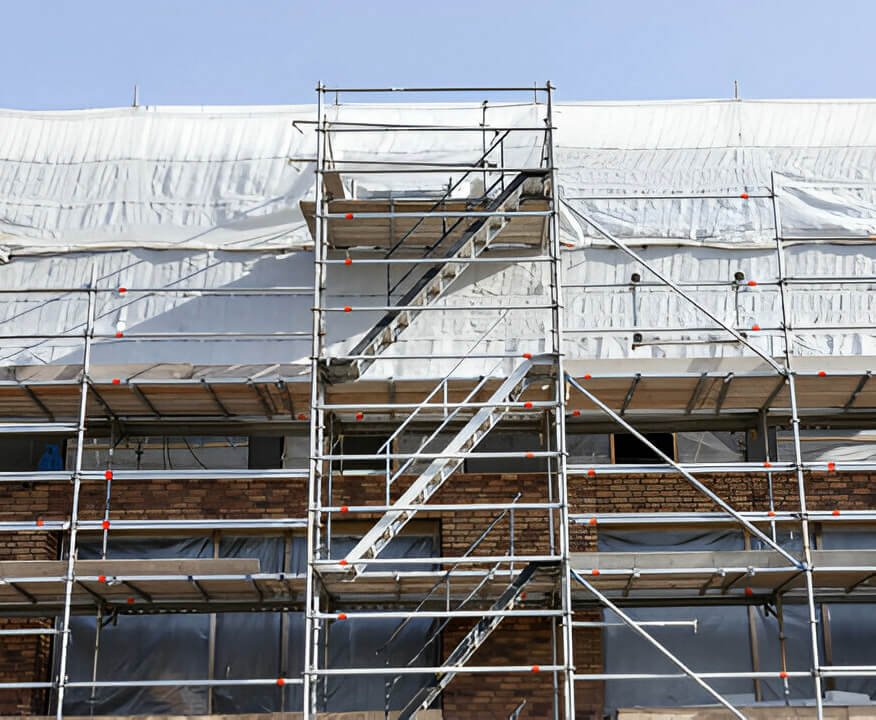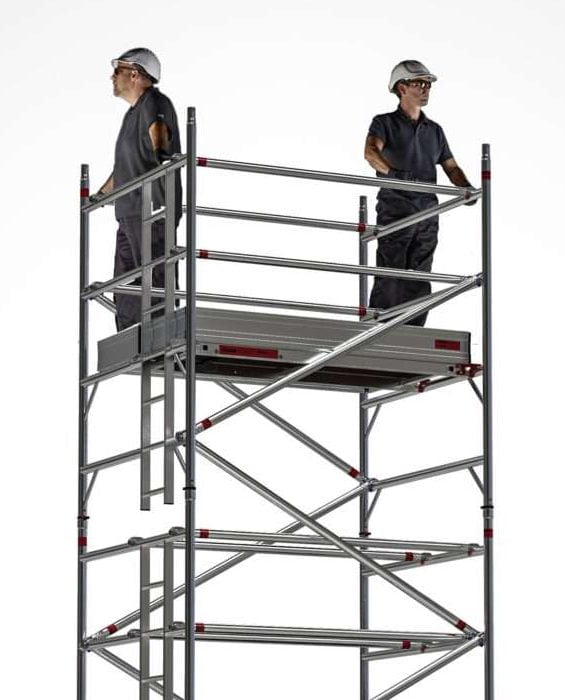Find Reliable Scaffolding Services in Surrey for Your Project Needs
Find Reliable Scaffolding Services in Surrey for Your Project Needs
Blog Article
Checking Out the Numerous Kinds Of Scaffolding Utilized in Construction Projects
The building sector relies greatly on various kinds of scaffolding to meet specific task needs, each offering unique advantages and applications. Typical framework scaffolding gives a strong structure for general jobs, while suspended scaffolding is crucial for job on skyscraper structures. Various other alternatives, such as system and rolling scaffolding, provide to performance and movement, specifically. The cantilever variant shows vital in metropolitan settings where space is constricted. Comprehending the subtleties of these scaffolding kinds is essential for optimizing safety and efficiency on building websites, prompting a closer exam of their special features and applications.

Conventional Framework Scaffolding
Conventional frame scaffolding is just one of the most widely utilized approaches in the building and construction sector due to its toughness and versatility. This system contains vertical and straight frames that are assembled to create a secure platform for employees and products. The primary elements consist of vertical messages, straight journals, and angled braces, which with each other provide a solid structure that can support significant loads.
Among the essential advantages of conventional structure scaffolding is its versatility to different building jobs, ranging from household structures to huge industrial structures. The modular style allows for simple setting up and disassembly, making it reliable for both long-lasting and short-term projects. Furthermore, the system can be tailored in height and width, suiting different structure designs and website conditions.
Security is paramount in scaffolding applications, and traditional structure systems are furnished with guardrails and toe boards to stop falls and make certain employee security. In addition, routine inspections and adherence to safety policies are critical in preserving the honesty of the scaffold. In general, typical frame scaffolding remains an essential option in the building and construction industry, giving a trustworthy system for labor and boosting total task performance

Suspended Scaffolding
Put on hold scaffolding offers an unique service for building and construction tasks that call for accessibility to raised surfaces, especially in scenarios where conventional framework scaffolding may be not practical. This kind of scaffolding is commonly put on hold from the roofing or top levels of a structure, using a system of ropes, platforms, and pulley-blocks to develop a working area that can be adapted to numerous elevations.
One of the main advantages of suspended scaffolding is its versatility. It can be easily rearranged or reduced to suit adjustments in building demands, making it suitable for jobs such as window setup, frontage work, and upkeep on skyscraper structures. In addition, the minimal impact of put on hold scaffolding enables better use of ground space in metropolitan atmospheres, where space is typically limited.
Safety is a crucial consideration in making use of put on hold scaffolding. Correct rigging and securing systems must be utilized to guarantee security and protect against mishaps. Operators must likewise be learnt the safe use this devices. On the whole, suspended scaffolding supplies a effective and efficient solution for accessing hard-to-reach locations in numerous building scenarios, boosting both productivity and safety and security on website.
System Scaffolding
System scaffolding, typically considered as a contemporary remedy in the scaffolding sector, includes pre-engineered parts that can be swiftly set up and adapted for various building projects. Scaffolding. This sort of scaffolding is characterized by its modular design, which permits versatility and efficiency on task sites, fitting various heights and structural needs
Usually made from high-strength scaffolder british steel or aluminum, system scaffolding uses enhanced durability and security. The elements consist of vertical articles, straight ledgers, and angled braces, which adjoin safely, making certain a durable framework. The design frequently integrates standard fittings, streamlining setting up and disassembly procedures, thus decreasing labor time and expenses.

Rolling Scaffolding
Moving scaffolding is a flexible alternative to typical fixed scaffolding, made for wheelchair and simplicity of use on building and construction websites. This sort of scaffolding consists of a system sustained by frameworks with wheels, permitting workers to easily move it as needed. The flexibility function considerably improves efficiency, as it minimizes downtime connected with dismantling and assembling fixed scaffolding.
Typically built from light-weight materials such as aluminum or steel, rolling scaffolding supplies a tough yet portable remedy for projects requiring constant repositioning - Scaffolding. It is especially useful in tasks such as paint, drywall installation, and electrical work, where accessibility to various elevations and places is essential
Safety is critical in rolling scaffolding layout, with features such as locking wheels to avoid unintentional activity when being used, and guardrails to secure employees from drops. Furthermore, several models are adjustable in elevation, fitting different task needs.
Cantilever Scaffolding

The style of cantilever scaffolding normally includes using brackets or arms secured to a building or framework, allowing the system to expand outward safely. Security is critical; hence, these scaffolds should be crafted to stand up to environmental conditions and numerous loads. Routine inspection and upkeep are vital to guarantee architectural integrity and employee safety and security.
Cantilever scaffolding is preferred for its flexibility and reliable use of space, making it scaffolder competence a preferred option in city environments where area constraints are typical. Moreover, it promotes easier access to high elevations, inevitably contributing to the overall effectiveness of construction tasks. As with all scaffolding types, proper training and adherence to security requirements are vital for employees utilizing cantilever scaffolding.
Verdict
Finally, the varied kinds of scaffolding made use of in building projects each offer unique functions customized to particular site demands. Typical structure scaffolding offers stability, while suspended scaffolding provides adaptability for raised tasks. System scaffolding helps with quick assembly, and rolling scaffolding enhances flexibility for varying work atmospheres. Cantilever scaffolding successfully attends to barriers in city setups. Comprehending these scaffolding types is crucial for maximizing security and efficiency in building, eventually adding to the effective completion of projects.
Conventional frame scaffolding supplies a strong foundation for basic tasks, while suspended scaffolding is essential for job on high-rise frameworks.Rolling scaffolding is a versatile choice to conventional set scaffolding, created for mobility and convenience of use on construction sites. As with all scaffolding kinds, proper training and adherence to safety and security requirements are crucial for employees utilizing cantilever scaffolding.
Conventional frame scaffolding gives stability, while suspended scaffolding offers convenience for elevated jobs. System scaffolding facilitates fast assembly, and rolling scaffolding improves wheelchair for differing job environments.
Report this page